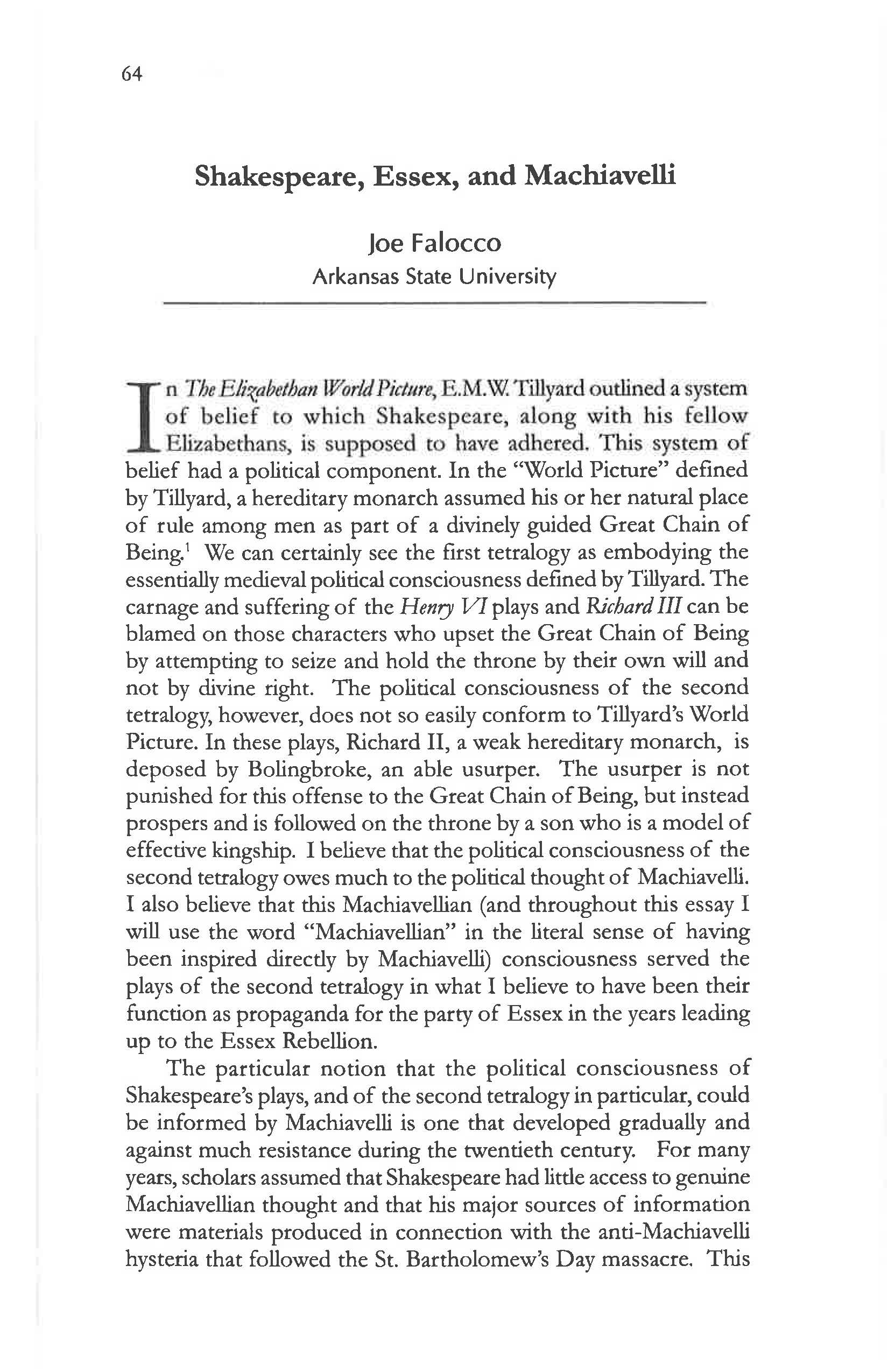Shakespeare, Essex, and Machiavelli
Main Article Content
Abstract
In The Elizabethan World Picture, E.M.W. Tillyard outlined a system of belief to which Shakespeare, along with his fellow Elizabethans, is supposed to have adhered. This system of belief had a political component. In the “World Picture” defined by Tillyard, a hereditary monarch assumed his or her natural place of rule among men as part of a divinely guided Great Chain of Being.1 We can certainly see the first tetralogy as embodying the essentially medieval political consciousness defined by Tillyard. The carnage and suffering of the Henry VI plays and Richard III can be blamed on those characters who upset the Great Chain of Being by attempting to seize and hold the throne by their own will and not by divine right. The political consciousness of the second tetralogy, however, does not so easily conform to Tillyard’s World Picture. In these plays, Richard II, a weak hereditary monarch, is deposed by Bolingbroke, an able usurper. The usurper is not punished for this offense to the Great Chain of Being, but instead prospers and is followed on the throne by a son who is a model of effective kingship. I believe that the political consciousness of the second tetralogy owes much to the political thought of Machiavelli. I also believe that this Machiavellian (and throughout this essay I will use the word “Machiavellian” in the literal sense of having been inspired directly by Machiavelli) consciousness served the plays of the second tetralogy in what I believe to have been their function as propaganda for the party of Essex in the years leading up to the Essex Rebellion.
